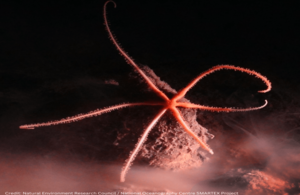Government launches new UK-based environmental science network on deep-sea mining
Experts and academics are invited to join a new science network that will help to provide evidence on the environmental impact of deep-sea mining

The UK Government has today (Monday 19 February) launched a new UK-based environmental science network, to gather scientific data, and carry out world-class research to help assess the environmental impacts of deep-sea mining.
Eligible applicants can now apply to join the network and share their expertise to help fill in the current evidence gaps in understanding the consequences of deep-sea mining on our ecosystems. Bringing together the UK’s environmental science expertise to share internationally will help the UK ensure that the highest environmental standards are enforced on deep sea mining.
The network will work alongside the UK’s recent decision to support a moratorium on the granting of exploitation licences for deep sea mining projects by the International Seabed Authority (ISA).
The moratorium means the UK will not sponsor or support licences until sufficient scientific evidence is available to assess the impacts of deep-sea mining activities on marine ecosystems and strong, enforceable environmental regulations, standards and guidelines have been developed and adopted by the ISA.
Marine Minister Lord Benyon said:
The UK is committed to protecting the world’s ocean and improving the conservation of our marine ecosystems, so it’s important that we ensure the best environmental standards are in place so damaging activities like deep-sea mining are strongly regulated.
This new network is a further step in showing how we can use the scientific expertise that is on offer to protect and improve the conservation of our marine biodiversity.”
Professor Daniel Jones from National Oceanography Centre said:
The new DSM Environmental Science Network is an excellent way to harness the skills of the UK community with expertise on environments of interest for deep-sea mining. It will enable the very active research being carried out by UK scientists to be communicated quickly and effectively to the government to support evidence-based decision making on this topic.
Dr. Adrian Glover, Merit Researcher at the Natural History Museum, said:
In joining the environmental science network, we are pleased to continue our research on the deep-sea to provide free, critical biodiversity data to everyone. At this crucial time in our planet’s history, it is important all activities that impact the natural world are informed by robust, evidence-based science.
The UK is committed to protecting and driving ocean conservation. Over recent years, the UK has:
- Committed to protecting at least 30% of the global ocean by 2030 through a network of Marine Protected Areas (MPAs) and Other Effective Area-based Conservation Measures (OECMs), and driven this forward through UK-chaired Global Ocean Alliance
- Supported developing countries to protect the marine environment through projects to protect and restore habitats such as mangroves, coral reefs and seagrasses through the £500 million Blue Planet Fund
- Tackled the scourge of plastic pollution, recently consulting on a ban on wet wipes containing plastic, as part of efforts to eliminate all avoidable plastic waste by 2042.
- Designated the first three Highly Protected Marine areas in English waters, enabling nature to fully recover by removing all harmful activities including fishing, construction and dredging, increasing marine biodiversity and supporting climate-resilient ecosystems to thrive.
- Created a comprehensive network of marine protected areas, in English waters there are 181 sites protecting 40% of our seas.
- Recently implemented a byelaw that restricts bottom towed fishing gear over rock and reef habitat in a further 13 MPAs.